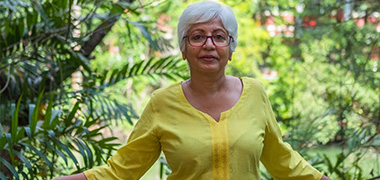
AI Occupational Exposure score unavailable For more insight, research the specific tasks and skills required for the role.
Explore all careersCognitive Scientists study the human mind and collaborate with professionals to advance treatments for cognitive disorders.
Get qualified to work as a Cognitive Scientist with a course recognised across Australia. Speak to a training provider to learn more.
The average weekly salary for a Cognitive Scientist in Australia is approximately $1,883. Increase your earning capacity by obtaining supporting qualifications in psychology, information technology, data analytics, and neuroscience. You could also join the Australasian Cognitive Neuroscience Society (ACNS).
 Courses.com.au Team
Courses.com.au Team
There are no clear employment figures for Cognitive Scientists currently working in Australia. They can work in academia, health and medicine, artificial intelligence, robotics, and human-computer interfaces.
 Courses.com.au Team
Courses.com.au Team
To become a Cognitive Scientist in Australia you will need post-graduate qualifications including a PhD. Get started with an undergraduate Bachelor of Cognitive and Brain Sciences, Bachelor of Science (Neuroscience), Bachelor of Psychology (Cognitive Neuroscience), or (double-degree) Bachelor of Cognitive and Brain Sciences/Bachelor of Information Technology. You’ll then need to pursue a Master of Research (Medicine, Health and Human Sciences), Master of Neuroscience (Advanced), or Master of Brain and Mind Sciences.
Source: Australian Government Labour Market Insights 2023
 Courses.com.au Team
Courses.com.au Team



Cognitive Scientists are professional scientists who study the human mind and cognitive functions including intelligence, memory, reasoning, decision-making, learning and development, language, emotional responses, and consciousness. They advance the field of knowledge in these areas and work with medical practitioners and psychologists to develop treatments for brain injuries and cognitive disorders like dyslexia and schizophrenia.
As a Cognitive Scientist you could be recording participant reaction times in a study of cognitive processes, using advanced brain imaging to evaluate brain activity while a stroke patient is moving their right arm, developing a computational model to simulate neural pathways in children with dyslexia, evaluating the data from three key behavioural experiments, writing an academic paper from your latest research findings, or attending an international conference for cognitive neuroscientists.
To succeed in this occupation you will need to be an innovative and critical thinker with the ability to clearly document and explain your research and findings.